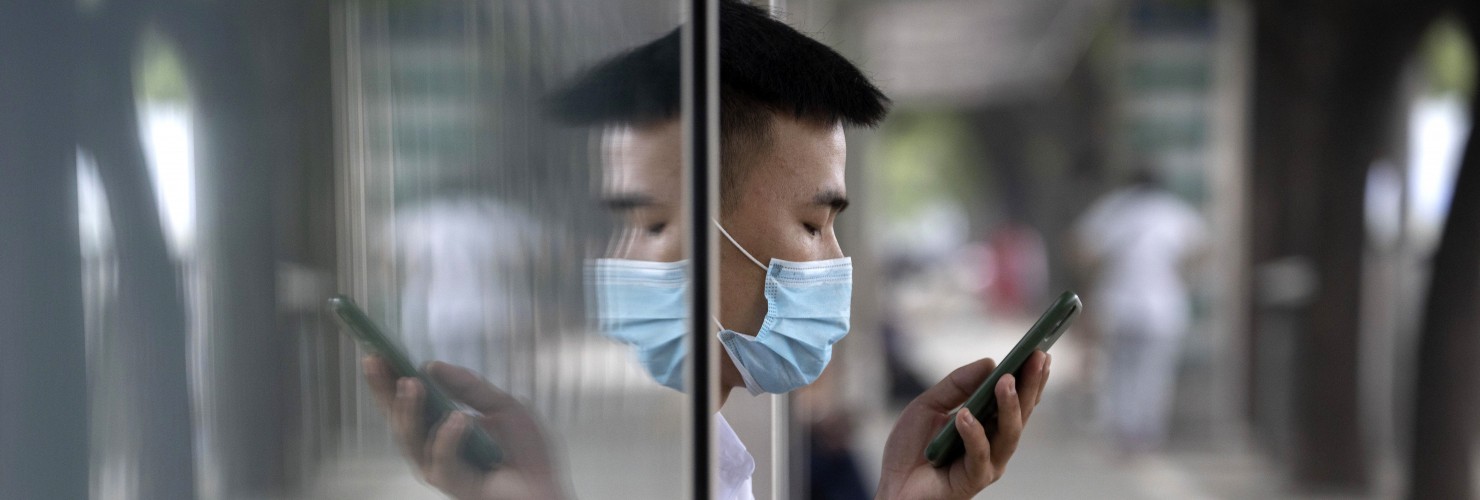

No credit for culprits
China’s local authorities are using the Social Credit System to blacklist Covid-19 rule-breakers. Vincent Brussee says citizens appear to like the system, but only if it is used judiciously.
During China’s Covid-19 epidemic, local authorities made novel use of the country’s Social Credit System (SCS) to enforce quarantine regulations, price-stability rules for medical products and other measures to contain the epidemic. While Europeans remain wary of the SCS, the system’s new disease-control features – sanctioning people who broke Covid-19 rules – were well received on Chinese social media, with nearly 200 million online views.
Utilizing the Social Credit System during the pandemic
The SCS is a broad framework of policies designed to increase trust and regulatory compliance. It is a flexible but crude tool that works primarily through sanctions: authorities can use blacklists to exclude people or companies that break the rules from all sorts of activities – traveling on high-speed trains or securing administrative permits. Contrary to received wisdom in the West, the system on the whole is binary and does not keep differentiated score for each citizen – even though there are minor pilot projects that do.
In the heat of China’s battle, local authorities made all instances of Covid-19-related sanctioning public: one offender was added to the blacklist for charging through a blockade that had been set up to prevent people from exiting their neighbourhood, another for intentionally concealing his travel history to the hard-hit Hubei province, yet another for “causing panic” by posting a video of an ambulance taking away a suspected Covid-19.
Approval for targeting small groups of severe offenders
Social-media users broadly supported hundreds of similar publications. When Shanghai’s authorities announced on Weibo that they would start blacklisting people for breaking anti-epidemic rules, over 200,000 people “liked” the announcement, with the most popular comments simply stating “beautifully done” (干得漂亮) or “I support” (支持). When the city of Hangzhou published a list of offenders, China’s netizens strongly voiced their support – the most “liked” comments called the offenders “utterly heartless” (丧尽天良) or said they should be forced to pay their own medical bills. One user conducted a poll that showed that nearly 93 percent of over 900 respondents supported this novel use of the SCS.
It might surprise observers in the West to hear that public support like this is not without precedent. It reflects a central and longstanding operating characteristic of the SCS: the system works best when only targeting small groups of severe offenders. Only 1.1 percent of Chinese companies were blacklisted in 2019, for infringements ranging from lax food security to operating overweight vehicles. True to that insight, the SCS during the Covid-19 crisis targeted only severe wrongdoers that had been officially charged by the police or courts. In response, social-media users were unequivocal in criticizing these transgressions as having severely endangered the whole country’s efforts to contain the epidemic.
The SCS responds to popular concerns as much as it moulds them. During the Covid-19 crisis, its popularity was surely bolstered by the shelving of some more established reasons for blacklisting – households and businesses could delay loan and mortgage repayments without fear of sanction. And authorities were aware of the risks of unfair and arbitrary punishment. Such concerns were voiced by one user, who said “it must be determined that the concealment [of Covid-19] was intentional before punishing, because some people fear they are not aware that they are infected” (要确定是故意隐瞒才能处罚。有些人只怕是自己都不知道就被感染了). SCS rule-makers in 2019 published guidelines on the need to clearly establish criminal intent and prevent “misjudgements” when blacklisting wrongdoers.
A crucial year for the Social Credit System
But Chinese authorities should not take popular support for granted. A key insight about SCS is that it enjoys popular support when the groups it targets are small. Should the SCS ever begin to affect a broader group of people – for example, as the result of using automated artificial intelligence (AI) and big data tools – public opinion could easily change.
At the moment, human administrators are responsible for taking practically all decisions on the basis of official documents. Automating this process would increase the scope of the system – and increase the potential for the kind of misjudgements avoided during the epidemic. So maybe the system remains people-driven for good reason. Authorities appear aware of the dangers. Some official documents recently suggested big data could be used for the SCS – but to assist human decisions, rather than to replace them.
Against this background, the Social Credit System is entering a crucial year. The system’s founding documents refer to 2020 as the target for its basic implementation. Few concrete plans for its trajectory are known beyond this point. There have been hints that Beijing will this year publish a new “Social Credit Law” (社会信用法), but there are few indications what this might entail. The recent use of SCS suggests the system has the most public support when it is transparent and equitable – and when it targets only a small group of transgressors whose actions are perceived to threaten some important greater good.
About the Author: Vincent Brussee is pursuing an MA in Asian Studies at Leiden University, focusing on Chinese digital society and cyber-governance. He gained professional experience at the Consulate General of the Kingdom of the Netherlands in Shanghai. He holds an BA in International Studies with a specialization in East Asian politics and political economy from Leiden University. He was an intern at the Public Policy and Society team at MERICS from April to June 2020.
The views expressed in this article are those of the author and not necessarily reflect those of the Mercator Institute for China Studies.